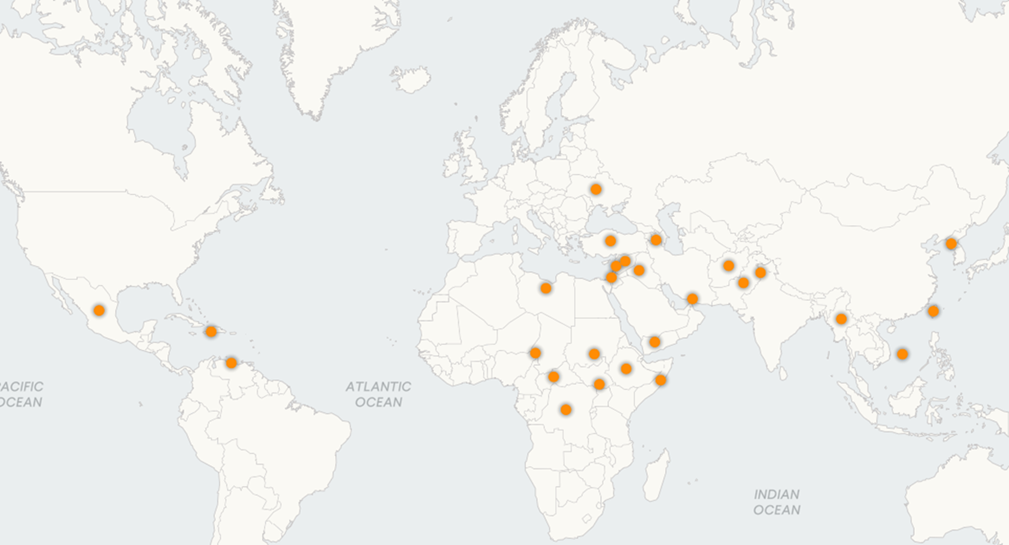Wow – the world just seems to be getting more challenging by the day. If you are trying to do business globally the problems with sensitive communication just keep stacking up.
There are more and more conflict areas everyday: Ukraine, Israel, Afghanistan, Iraq, Georgia (the country), Miramar, Sudan, Somali, Niger, Nigeria, Columbia, Venezuela, DRC, Pakistan, Armenia, etc.
And then there are the potential hot spots such as Taiwan and Hong Kong.

Source: Council on Foreign Relations – https://www.cfr.org/global-conflict-tracker
Satphone Limitations
Some organizations have been going to satellite phones because at any given time communications might be cut off using mobile networks. While a satphone is expensive to use, it makes a GREAT backup phone.
However, there is a misperception that satphones are secure by design.
No, no, no, my friends.
The reality is that a satphone is really not any more secure than a regular mobile phone. The operator of the satellite ground station has access to whatever you are saying or sending, unless you are using some kind of secure application, like QTel (formerly Qphone) which provides a hardened and secure ecosystem protecting your information.
And then there are those who want to intercept satphones: It’s not easy but if you are in an area of conflict, they probably have a 30′ dish to intercept the C-Band downlink and they will divine your specific satellite footprint to do that. Intercepting the L-Band link is much easier – with a smaller antenna – but that antenna needs to be in the small L-Band footprint. simply Google C-Band and L-Band footprints for more details. By the way, you need L-Band and C-Band receivers to get both sides of the conversation.
Satellite calls ARE encrypted but a number of manufacturers that develop satphone intercept systems (at least 30) have cracked that encryption and most countries have law enforcement agencies that have satphone intercept capabilities.
Look to a solution like QTel to protect you from these, while encrypting your voice, video and messages with quantum resistant encryption to protect your information and your communications.
Insecure Messaging Apps
Then there is the problem of your “apps” because most of them are undermining you with data scraping, location monitoring, message access, tracking, etc. The fewer apps the better.
Tracking
From a tracking perspective, precise location is difficult on a satphone and requires sophisticated electronic listening equipment unless the satphone you are using is transmitting a GPS signal as some do. Being a radio, a satellite phone must emit some signal and that signal is traceable. Knowing exactly where the radio is requires phased arrays, difficult processing and exotic technology but it is possible if you are prepared. The thing is you need to be in the area with this equipment.
The most common way to do that is to use a special aircraft which is fitted for electronic warfare. It circles the area of interest and listens to the target band. The problem is what to do if there are multiple sat phone users in the same area, then you have to decrypt the calls and analyze them, but some governments have that technology.
And of course, there are all those apps that are tracking you all the time because they can.
Is a satphone worth it?
If you are operating in or near a conflict zone OR in proximity to a location that might become one, then the answer is absolutely. Just keep it to the basics on the device and turn off GPS, Bluetooth and Wi-Fi. Additionally, solutions like QTel provide another layer of communication and should be part of your technology stack.
Global Integrity has resources with tremendous expertise in electronic tradecraft that are available to assist. Contact us now at info@globalintegrity.com.

